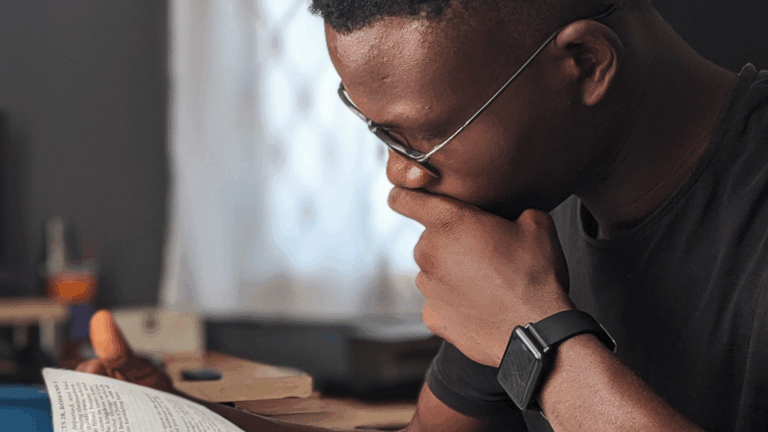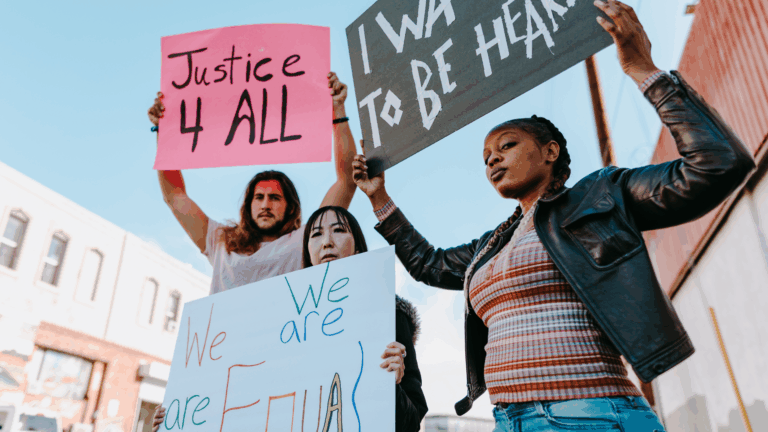Brian Mulder is a Recovery Coach with Living Truth, a ministry that offers freedom, hope, and healing for those struggling with unwanted sexual behavior and to family members impacted by them. In addition to his work with men and sexual integrity, he and his wife, Karen, have a growing passion to share their story and help bring resources and support to parents and pastors with LGBT+ loved ones in their families and congregations. We’ve invited Brian—a parent and pastor who reviewed our Parent Course—to share why he’s convinced every parent and pastor should take Equip’s Parent Course!
I’m a straight, white, American, Christian male. I’m a husband, a father, and a grandfather. I’ve been a worship leader and pastor, serving the Church for almost 40 years. I’m convinced of a historic sexual ethic as taught in the Bible, yet I have struggled with my own sexual integrity and brokenness. I am also the father of gay man. And I wish Equip’s Parent Course had been available to me 30 years ago.
My son, Aaron, came out to my wife, Karen, and me in his early 20s. Having grown up in our church, Aaron knew our theological perspective on gay sex and Christian marriage, but we were ill-equipped to have meaningful and compassionate conversations in our own family. With few resources for support available to us at the time, we all worked through his coming out to us the best we could. We weren’t sure who we could trust or what we could safely share with others, especially in our church. Several years after telling us he was gay, Aaron met his partner, Roberto, and they were married last year. We love Aaron deeply and consider his husband to be a beloved member of our family. Thankfully, we haven’t needed to sacrifice our convictions or our compassion to love them well, but as Aaron would say, “It’s complicated.” (I have his permission and blessing to share this post.)
What if our son hadn’t processed alone for a decade?
How might our family’s story have been different if Aaron had shared his journey with us sooner? I grieve that he spent more than 10 years making sense of sexuality alone in fear and silence, without the support of his parents or his church. If I could change anything about the past, I would make sure our family and church shared about God’s love and wisdom for gay people long before Aaron realized he was gay. Maybe then, Aaron would have shared with us sooner and trusted us to navigate his sexuality with him. But when Aaron was 5 years old, I simply did not know how to share with any of my children about God’s provision and wisdom for sexuality.
A few months ago, I had the opportunity to participate in Equip’s new Parent Course. There is a necessary urgency around this topic, and Equip’s Parent Course reflects this urgency in both its content and passion. Secular culture is sending obvious messages and subtle cues to our children about sex and romance—every single day. Church culture is also sending messages, but, having spent my life in the church, I can see how many biblical truths about marriage, family, singleness, and sexuality have been either assumed, avoided, or distorted. As followers of Jesus, every Christian is called to a lifetime of sexual stewardship. As Christian parents, we must learn to think more deeply about what this means for ourselves and for our children. Then, we must actually have intentional conversations with our kids, early and often, beginning in their preschool years and continuing through puberty into young adulthood.
While “Christian Parenting in Sex-Obsessed Culture” prepares parents to talk to every kid about sexual stewardship for all people, here are three conversations covered by Equip’s Parent Course that I wish I’d had with my gay son 30 years ago:
1. “Some people are gay and God loves gay people. He has good and wise plans for gay people.”
I wish I had understood and acknowledged the simple reality of same-sex attraction (yes, even among Christian kids). My wife and I tended to assume all our kids were straight and sent cues that straight is good and gay is bad. When Aaron began to experience attractions that were different from his peers, he didn’t know that we could talk together about these things because we never had (and we truly did not know how). Initiating and inviting nonjudgmental conversations like this about a spectrum of attractions would have increased the safety, openness, and trust we wanted Aaron and our other children to experience with us.
2. “If you realize you’re gay, we hope you will tell us so that you don’t have to make sense of that alone. Please know that you didn’t do anything wrong, we know you didn’t choose this, and we won’t reject you or try to fix you.”
When Aaron came out to us as an adult, we knew we loved our son and we reassured him of that, but we were not equipped to know what else he needed from us at the time. We had little context for helping him with his questions and concerns, and we had plenty of our own unanswered questions. I so wish I had known more about what it’s like for a young person to experience same-sex attraction, especially in the context of faith and church—how they felt different at an early age, how they doubted God’s love for them, how they feared the rejection of family and friends, and how hard they prayed for change that never happened. What if before Aaron was 10, we had shared with him that being gay wasn’t his fault, that we knew he didn’t choose it, that we wouldn’t reject or try to fix him, and that we didn’t want him to make sense of his sexuality alone? Perhaps he would have shared with us more than a decade earlier.
3. “Did you know that God has two best ways for Christians to find intimacy in the context of family? Both singleness for the Lord and marriage are good callings, and I’m excited for whichever God has for you!”
The Bible places great value on singleness, yet like most parents, our assumptions were that all our children would marry. We sent cues that being married fulfills all our needs and desires for intimacy and being single means being alone and without family. While we in the Church may know that this is not what the scriptures teach, the way we live and talk with each other does not normally reflect this. The theological truth that singleness is a gift from God that reflects his character and serves the Church was absent from our conversations about marriage, sex, and family. Our son observed that singleness was a lesser, even painfully unattractive, option for those who felt they did not have a choice. What if instead, from an early age, we had celebrated both Christian marriage and singleness for every Christian, gay or straight?
In Aaron’s formative years, language we didn’t have and attitudes we did have caused him to doubt how we would respond if he told us the truth about what he was experiencing. This kind of awareness and understanding is not necessarily intuitive, even in the most well-intentioned parents. Over the past few years, we have begun learning what we wish we knew and lived out more fully as young parents. This is at the heart of what Equip’s Parent Course offers, helping parents gain information they need without being overwhelmed by it—a perspective that leads to more compassion, less fear; more conversations, less silence; more listening, less lecturing; more grace, less judgment.
I believe that Aaron knows today what I would have wanted him to know at age 10-12—that God loves him and has good things for him; that I am so sorry if he doubted how his mom and I would respond to his coming out; that we will listen to him, comfort him, protect him and fight for him if necessary; and that we will continue to do whatever we can to help him thrive in God’s good plan for his life.
I know several Christian parents with LGBT+ children. Very few (if any) of them would say they found their churches to be safe and helpful places for them or for their children. Resources like Equip’s Parent Course can change that. I am grateful to Equip for embracing this calling and speaking faithfully into the void with both grace and truth.
You never know who in your life will be the beneficiary of the time and money you spend attending this Parent Course, but I can guarantee that it will change you, and it will change the lives of those you minister to, maybe even those you parent. Thank you, Equip, for all that you are doing to make this possible.






